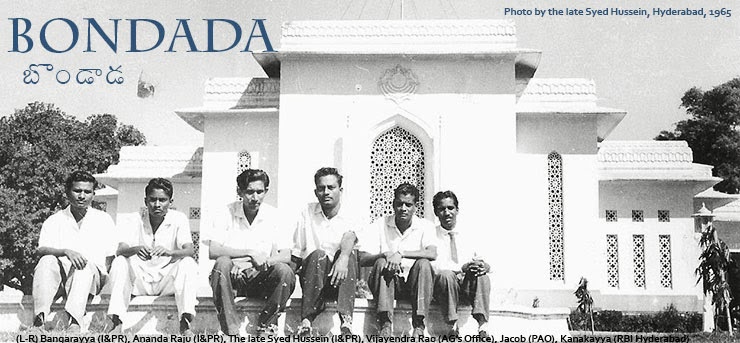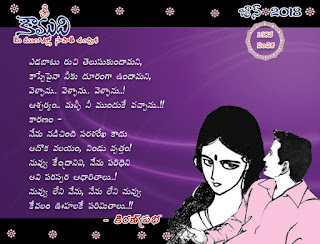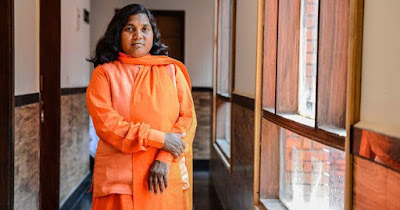Carrying
the weight of his party's disapproval, Mr Mukherjee, 82, delivered messages on
India's history of tolerance, inclusion and pluralism.
All India
| Edited by Deepshikha Ghosh | Updated: June 08, 2018 13:41
IST
Former
President Pranab Mukherjee said we derive our strength from tolerance at the
RSS event
NAGPUR: It
may not have been succinct but Pranab Mukherjee's speech to the RSS on Thursday
evening had a clear message: "We derive our strength from tolerance. We
accept and respect our pluralism... Any attempt at defining our nationhood in
terms of dogmas and identities of religion, region, hatred and intolerance will
only lead to dilution of our national identity."
Mr Mukerjee's term as President of India, a post enabled by his party of over five decades, the Congress, ended in July last year. His decision to address thousands of RSS volunteers has been questioned and bemoaned by the Congress as a political gift to its opponent, the BJP, at a time when the country is being landscaped for the next general election.
The RSS or Rashtriya Swayamsewak Sangh is the ideological mentor of the ruling BJP. It has been assailed by Congress president Rahul Gandhi and other opposition leaders for promoting a culture of intolerance underpinned by majoritarianism. Mr Mukherjee's quality time with the RSS, Congress leaders said, loans it respectability.
Mr Mukerjee's term as President of India, a post enabled by his party of over five decades, the Congress, ended in July last year. His decision to address thousands of RSS volunteers has been questioned and bemoaned by the Congress as a political gift to its opponent, the BJP, at a time when the country is being landscaped for the next general election.
The RSS or Rashtriya Swayamsewak Sangh is the ideological mentor of the ruling BJP. It has been assailed by Congress president Rahul Gandhi and other opposition leaders for promoting a culture of intolerance underpinned by majoritarianism. Mr Mukherjee's quality time with the RSS, Congress leaders said, loans it respectability.
It was
reportedly at
the instance of Mr Gandhi's mother, Sonia, who was the party's top boss
till December, that Mr Mukherjee was questioned for his voyage to Nagpur on
Twitter last night by top Congress strategist Ahmed Patel . "I did not
expect this from Pranab da," Mr Patel tweeted. It wasn't just former
colleagues who offered public remonstrance. Mr Mukherjee's daughter Sharmistha
Mukherjee, who is a member of the Congress, said, also on Twitter, that while
Mr Mukherjee's speech would be forgotten, the
visual imprint of his visit would linger damagingly.
Pranab Mukherjee served as one of the most senior cabinet ministers in the two-term coalition government of Dr Manmohan Singh. His proximity to Sonia Gandhi and his ability to win consensus among opposition parties -- or at least draw them to the negotiating table during tricky impasses -- gave him mega bonus points.
There were few signs in his speech on Thursday of shifting allegiances -- the former president did not tread gently around allegations that his hosts regularly confront from critics. "The soul of India resides in pluralism and tolerance. This plurality of our society has come through assimilation of ideas over centuries. Secularism and inclusion are a matter of faith for us," he said.
Congress spokesperson Randeep Surjewala told reporters: "He taught the (Narendra) Modi government rajdharma." The remarks suggested Mr Mukherjee had redeemed himself. But not all Congressmen agreed. Manish Tewari tweeted:
THIS COUPLET APPLIES APTLY TO @CitiznMukherjee TODAY— Manish Tewari (@ManishTewari) June 7, 2018
ज़फर आदमी उन को ना जानिएगा
गो हो वो कैसा ही साहिबे फह्मो ज़का
जिसे ऐश में यादे खुदा न रही
जिसे तैश में खौफे खुदा न रहा
CALL HIM NOT A MAN,’ZAFAR', HOWSOEVER WISE, WHO,IN JOY, FORGETS GOD,IN RAGE HAS NO FEAR OF THE ALL MIGHTY
Earlier on Thursday, Mr Mukherjee was warmly welcomed at the RSS headquarters, where he paid homage at the memorial of KB Hedgewar, the founder of the RSS.
"Today I came here to pay my respect and homage to a great son of Mother India," he wrote in the visitor's book at the memorial. Not long after, the Congress tweeted what it called a "primer on what the RSS really stands for".
Anand Sharma, one of the Congress leaders who had tried to dissuade Mr Mukherjee from the visit, tweeted: "Images of Pranab Da, veteran leader and ideologue at RSS Headquarters have anguished millions of Congress workers."
Since Mr Mukherjee, 82, accepted the RSS' invite to serve as Chief Guest at its event, there have been reports that he is seeking to rise above his party - that he is foraying into the non-BJP, non-Congress terrain of a "Federal Front", a loose and nascent league of regional leaders like Mamata Banerjee who believe that the Congress, decrepit and no longer a national force, must buckle itself into the backseat while they steer a combined opposition into 2019 to roadblock PM Modi from getting re-elected.
The RSS earlier on Thursday said that the Congress' attack on his participation in its event reveals its small-mindedness. It described Mr Mukherjee as a "mature and experienced" politician.
Perhaps that review has been tempered by Pranab Mukherjee's frank talk.




